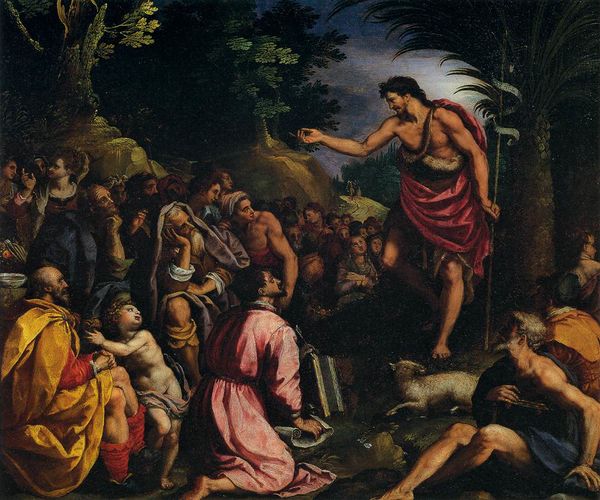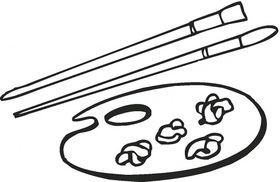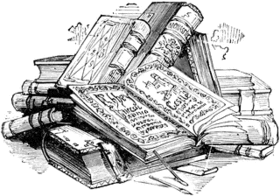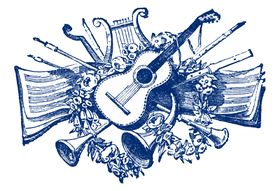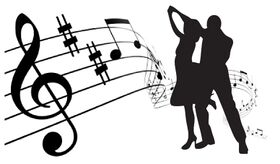Difference between revisions of "Category:John the Baptist (subject)"
| (84 intermediate revisions by the same user not shown) | |||
| Line 1: | Line 1: | ||
{| style="margin-top:10px; background:none;" | |||
| style="background:white; width:65%; border:1px solid #a7d7f9; vertical-align:top; color:#000; padding: 5px 10px 10px 8px; -moz-border-radius: 10px; -webkit-border-radius: 10px; border-radius:10px;" | | |||
<!-- ===================== COLONNA DI SINISTRA ==================== --> | |||
{| cellpadding="2" cellspacing="5" style="width:100%; vertical-align:top; background:transparent;" | |||
{{WindowMain | |||
|title= John the Baptist (Home Page) | |||
|backgroundLogo= Bluebg_rounded_croped.png | |||
|logo= Logo.png | |||
|px= 38 | |||
|content= [[File:Preaching Baptist Allori.jpg|600px]] | |||
According to Christian (Jewish, and Islamic) traditions, '''John the Baptist''' (1st century CE) was a Jewish religious leader. | |||
< ''Life of John the Baptist'' : [[Annunciation to Zacharias]] -- [[Visitation of Mary]] -- [[Birth of John the Baptist]] -- [[Child John the Baptist with Jesus]] -- [[Young John the Baptist in the Desert]] -- [[Preaching of John the Baptist]] -- [[Baptism of Jesus]] -- [[Question about Fasting]] -- [[Messengers from John the Baptist]] -- [[Death of John the Baptist]] -- [[Question about Authority]] -- [[Relics of John the Baptist]] > | |||
John the Baptist | |||
< ''Scholarship'' : [[John the Baptist (research)]] -- [[John the Baptist (sources)]] > | |||
< ''Fiction'' : [[John the Baptist (fiction)]] -- [[John the Baptist (art)]] -- [[John the Baptist (literature)]] -- [[John the Baptist (music)]] -- [[John the Baptist (dance)]] -- [[John the Baptist (cinema)]] > | |||
[[ | |||
[[ | < ''People'' : [[Zacharias]] -- [[Elizabeth]] -- [[Jesus of Nazareth]] -- [[Mary of Nazareth]] -- [[Joseph of Nazareth]] -- [[Herod Antipas]] -- [[Herodias]] -- [[Salome]] > | ||
[[ | *This page is edited by [[Gabriele Boccaccini]], University of Michigan | ||
}} | |||
{{WindowMain | |||
|title= Overview | |||
|backgroundLogo= Bluebg_rounded_croped.png | |||
|logo = logo.png | |||
|px= 38 | |||
|content= | |||
[[John the Baptist]] is mentioned both in Christian sources and in the writings of Flavius Josephus. | |||
[[ | John was a Jewish religious leader who preached in the wilderness of [[Perea]] across the [[Jordan River]]. The location itself seems to suggest some eschatological reference to the experience of the Jews in the desert before the entrance into the Promised Land. [When the Gospel Matthew says that John preached "in the wilderness of Judea", it reflects anachronistically the situation after the year 44 CE, when [[Perea]] was annexed to Judea and became "the region of Judea beyond the Jordan" (Mt 19:1).] | ||
[[ | According to Christian sources, John's teaching was centered on the announcement of the imminent end of time and the coming of the [[Messiah]] as the eschatological Judge. John urged people to be baptized "with water" for forgiveness of sin, in order to avoid the destruction of the imminent baptist "with fire" of the Last Judgment (the reference to the "Holy Spirit" should be taken as a later attempt to connect John's announcement to the Christian baptism). | ||
Christian sources insist that John did not make any messianic claim. [[Josephus]], who omits any reference to the eschatological teaching of John, also stresses that John did not claim any authority to forgive sins, but intended his baptist as an act of atonement and an invocation to God. | |||
Christians valued John as the precursor who prepared the path for the ministry of Jesus (and the Christian baptism), and later sources (especially the [[Gospel of John]]) would present John as the conscious witness of the messiahship of Jesus. In earlier sources (Gospel of Mark, and Q) however the relationship between John and Jesus is not as direct and obvious. Josephus also is not aware of any connection between the two. | |||
That Jesus was baptized by John, seems to be beyond doubt, as the Christian tradition had no interest in creating such an embarrassing event. Being baptized meant an acknowledgment of the authority of John and a recognition, from Jesus' part, that he was a sinner and in need of God's forgiveness. The Christian tradition solved the problem by turning the Baptism into the setting of an heavenly revelation, followed by a time of spiritual initiation in the desert (see [[Temptation of Jesus]]) | |||
[ | We see a clear progression in Christian tradition. According to the earliest Gospel (Mark [followed by Luke]), Jesus was among the many who were baptized by John and there was no special interaction between the two (even the voice from heaven addressed, and was heard by, Jesus only: "You are..."). On the contrary, in Matthew the two characters interact and the voice from heaven makes a sort of public announcement: "This is...". In John, the Baptist is "the witness" who explicitly invites his disciples to join Jesus the Messiah: "Here is the Lamb of God... This was he of whom I said...". Historically, however, the disciples of John and the disciples of Jesus remained two distinct groups, divided on the crucial issue of the coming of the Messiah, which the disciples of John (along with the Pharisees) continued to see as a future event (see [[Question about Fasting]], and [[Messengers from John the Baptist]]). | ||
[[ | John the Baptist was certainly imprisoned and executed by [[Herod Antipas]] at [[Machaerus]]. The reason must have been some criticism expressed by John toward Herod's marriage with [[Herodias]]. This situation was at the origin of the popular legend of the Banquet of Herod, which is reported in the Gospels of Mark and Matthew. | ||
Equally unreliable from the historical point of view is Luke's account of the infancy of John, which repeats traditional Jewish patterns about the miraculous birth of prophets and religious leaders. According to this narrative, John was the son of the priest [[Zacharias]] and [[Elizabeth]], thus a priest himself. The later Christian tradition would heavily elaborate on these legends and fill the "hidden years" of John's life with narratives about his meetings with the infant Jesus and his education in the wilderness. | |||
==== | ====John the Baptist, in Islamic traditions==== | ||
In Arabic, John's name is Yahya. He is venerated as one of the 25 Prophets mentioned in the Quran, one in the chain of prophets who led to Jesus and Muhammad. His father, [[Zacharias]] (Zecheriah), was also one of these Prophets. | |||
"And We bestowed upon Abraham (offspring) Isaac and Jacob and each of them did We guide to the right way as We had earlier guided Noah to the right way; and (of his descendants We guided) David and Solomon, Job, Joseph, Moses and Aaron. Thus do We reward those who do good. (And of his descendants We guided) Zecheriah, John, Jesus and Elias: each one of them was of the righteous." (Quran 6:84-85). | |||
Islam shares Christian traditions about the miraculous birth of John the Baptist, as the offspring of a barren mother and an elderly father (Quran 19:7-9). God made this child a blessing for his parents and beautiful in character, chaste and righteous (Quran 3:38-39). | |||
==John the Baptist | ====[[Relics of John the Baptist]]==== | ||
According to Christian and Islamic traditions, [[Relics of John the Baptist]] are preserved in Samaria, Damascus, Rome and Aachen, as well as in numerous other locations. | |||
}} | |||
[[Category: | |} | ||
[[Category:People]] | |<!-- SPAZI TRA LE COLONNE --> style="border:5px solid transparent;" | | ||
<!-- ===================== COLONNA DI DESTRA ==================== --> | |||
| style="width:35%; border:1px solid #a7d7f9; background:#f5faff; vertical-align:top; padding: 5px 10px 10px 8px; -moz-border-radius: 10px; -webkit-border-radius: 10px; border-radius:10px;"| | |||
{| id="mp-right" cellpadding="2" cellspacing="5" style="width:100%; vertical-align:top; background:#f5faff; background:transparent;" | |||
{{WindowMain | |||
|title= [[John the Baptist (fiction)]] | |||
|backgroundLogo= Bluebg_rounded_croped.png | |||
|logo= contents.png | |||
|px= 38 | |||
|content= | |||
John the Baptist is a quite frequent character in fiction, but like in the gospel narratives, is never the protagonist. As the precursor of the Messiah, he is present in virtually all major fictional works on the Life of Jesus, with only a few conspicuous exceptions. And he is the innocent victim of the intrigues of [[Herod Antipas]], [[Herodias]] and [[Salome]], which led to his execution. | |||
}} | |||
{{WindowMain | |||
|title= [[John the Baptist (art)]] | |||
|backgroundLogo= Bluebg_rounded_croped.png | |||
|logo= history.png | |||
|px= 38 | |||
|content= [[File:Art2.jpg|280px]] | |||
}} | |||
{{WindowMain | |||
|title= [[John the Baptist (literature)]] | |||
|backgroundLogo= Bluebg_rounded_croped.png | |||
|logo= contents.png | |||
|px= 38 | |||
|content= [[File:Literature.gif|280px]] | |||
}} | |||
{{WindowMain | |||
|title= [[John the Baptist (music)]] | |||
|backgroundLogo= Bluebg_rounded_croped.png | |||
|logo= history.png | |||
|px= 38 | |||
|content= [[File:Music.jpg|280px]] | |||
}} | |||
{{WindowMain | |||
|title= [[John the Baptist (dance)]] | |||
|backgroundLogo= Bluebg_rounded_croped.png | |||
|logo= history.png | |||
|px= 38 | |||
|content= [[File:Dance.jpg|280px]] | |||
}} | |||
{{WindowMain | |||
|title= [[John the Baptist (cinema)]] | |||
|backgroundLogo= Bluebg_rounded_croped.png | |||
|logo= history.png | |||
|px= 38 | |||
|content= [[File:Cinema.jpg|280px]] | |||
}} | |||
{{WindowMain | |||
|title= [[John the Baptist (sources)]] | |||
|backgroundLogo= Bluebg_rounded_croped.png | |||
|logo = logo.png | |||
|px= 38 | |||
|content= | |||
John the Baptist is mentioned in early Christian sources and by [[Josephus]]. | |||
}} | |||
{{WindowMain | |||
|title= [[John the Baptist (research)]] | |||
|backgroundLogo= Bluebg_rounded_croped.png | |||
|logo = logo.png | |||
|px= 38 | |||
|content= | |||
The study of the "historical" John the Baptist is an important element for the study of Second Temple Judaism and Christian Origins. Scholars have explored in particular the relationship of John with the [[Essenes]], his connections with [[Jesus of Nazareth]], and the role he played in the emergence of later movements, like the [[Mandeans]]. | |||
==== Related subjects ==== | |||
*[[Zacharias]] -- [[Elizabeth]] -- [[Jesus of Nazareth]] -- [[Herod Antipas]] -- [[Herodias]] -- [[Salome]] -- [[Essenes]] -- [[Mandeans]] | |||
==== References ==== | |||
*'''John the Baptist''' / [[Joan E. Taylor]] / In: [[The Eerdmans Dictionary of Early Judaism (2010 Collins / Harlow), edited volume]], 819-821 | |||
==== External links ==== | |||
*[http://en.wikipedia.org/wiki/John_the_Baptist Wikipedia] -- [http://www.livius.org/men-mh/messiah/messianic_claimants19.html Livius.org] | |||
*[http://www.newadvent.org/cathen/08486b.htm Catholic Encyclopedia] | |||
}} | |||
|} | |||
|} | |||
== Life of John the Baptist == | |||
The first Lives of [[John the Baptist]] were fictional accounts provides by theologians, artists and playwrights. | |||
The traditional narrative followed the [[Gospel of Luke]] in the description of the infancy of John, was enriched by "apocryphal" legends about his childhood in the desert and his meetings as an infant and a child with Jesus of Nazareth, and then harmonized the few episodes narrated in the Gospels, finally focusing on his death as told in the Gospels of Mark and Matthew. | |||
As in the Gospels and apocryphal stories, the narrative overlapped with the [[Life of Jesus]] ([[Visitation of Mary]]; [[Child John the Baptist with Jesus]]; [[Baptism of Jesus]]; [[Question about Fasting]]; [[Messengers from John the Baptist]]) and the [[Life of Mary]] ([[Visitation of Mary]], [[Child John the Baptist with Jesus]]). | |||
Over the century the popular interest came to concentrate almost exclusively on the events surrounding the [[Death of John the Baptist]] and in the works of artists and novelists the character of [[Salome]] overshadowed the prophet. | |||
Only since the second part of the 20th century, with the publication of the first scholarly "biographies," the character of John the Baptist has reemerged as a central figure in Second Temple Judaism and a key figure to understand Christian origins. | |||
==External links == | |||
[[Category:Index (database)]] | |||
[[Category:People (database)]] | |||
[[Category:Prophets (subject)]] | |||
Latest revision as of 21:51, 20 January 2021
|
John the Baptist (Home Page) According to Christian (Jewish, and Islamic) traditions, John the Baptist (1st century CE) was a Jewish religious leader. < Life of John the Baptist : Annunciation to Zacharias -- Visitation of Mary -- Birth of John the Baptist -- Child John the Baptist with Jesus -- Young John the Baptist in the Desert -- Preaching of John the Baptist -- Baptism of Jesus -- Question about Fasting -- Messengers from John the Baptist -- Death of John the Baptist -- Question about Authority -- Relics of John the Baptist > < Scholarship : John the Baptist (research) -- John the Baptist (sources) > < Fiction : John the Baptist (fiction) -- John the Baptist (art) -- John the Baptist (literature) -- John the Baptist (music) -- John the Baptist (dance) -- John the Baptist (cinema) > < People : Zacharias -- Elizabeth -- Jesus of Nazareth -- Mary of Nazareth -- Joseph of Nazareth -- Herod Antipas -- Herodias -- Salome >
Overview John the Baptist is mentioned both in Christian sources and in the writings of Flavius Josephus. John was a Jewish religious leader who preached in the wilderness of Perea across the Jordan River. The location itself seems to suggest some eschatological reference to the experience of the Jews in the desert before the entrance into the Promised Land. [When the Gospel Matthew says that John preached "in the wilderness of Judea", it reflects anachronistically the situation after the year 44 CE, when Perea was annexed to Judea and became "the region of Judea beyond the Jordan" (Mt 19:1).] According to Christian sources, John's teaching was centered on the announcement of the imminent end of time and the coming of the Messiah as the eschatological Judge. John urged people to be baptized "with water" for forgiveness of sin, in order to avoid the destruction of the imminent baptist "with fire" of the Last Judgment (the reference to the "Holy Spirit" should be taken as a later attempt to connect John's announcement to the Christian baptism). Christian sources insist that John did not make any messianic claim. Josephus, who omits any reference to the eschatological teaching of John, also stresses that John did not claim any authority to forgive sins, but intended his baptist as an act of atonement and an invocation to God. Christians valued John as the precursor who prepared the path for the ministry of Jesus (and the Christian baptism), and later sources (especially the Gospel of John) would present John as the conscious witness of the messiahship of Jesus. In earlier sources (Gospel of Mark, and Q) however the relationship between John and Jesus is not as direct and obvious. Josephus also is not aware of any connection between the two. That Jesus was baptized by John, seems to be beyond doubt, as the Christian tradition had no interest in creating such an embarrassing event. Being baptized meant an acknowledgment of the authority of John and a recognition, from Jesus' part, that he was a sinner and in need of God's forgiveness. The Christian tradition solved the problem by turning the Baptism into the setting of an heavenly revelation, followed by a time of spiritual initiation in the desert (see Temptation of Jesus) We see a clear progression in Christian tradition. According to the earliest Gospel (Mark [followed by Luke]), Jesus was among the many who were baptized by John and there was no special interaction between the two (even the voice from heaven addressed, and was heard by, Jesus only: "You are..."). On the contrary, in Matthew the two characters interact and the voice from heaven makes a sort of public announcement: "This is...". In John, the Baptist is "the witness" who explicitly invites his disciples to join Jesus the Messiah: "Here is the Lamb of God... This was he of whom I said...". Historically, however, the disciples of John and the disciples of Jesus remained two distinct groups, divided on the crucial issue of the coming of the Messiah, which the disciples of John (along with the Pharisees) continued to see as a future event (see Question about Fasting, and Messengers from John the Baptist). John the Baptist was certainly imprisoned and executed by Herod Antipas at Machaerus. The reason must have been some criticism expressed by John toward Herod's marriage with Herodias. This situation was at the origin of the popular legend of the Banquet of Herod, which is reported in the Gospels of Mark and Matthew. Equally unreliable from the historical point of view is Luke's account of the infancy of John, which repeats traditional Jewish patterns about the miraculous birth of prophets and religious leaders. According to this narrative, John was the son of the priest Zacharias and Elizabeth, thus a priest himself. The later Christian tradition would heavily elaborate on these legends and fill the "hidden years" of John's life with narratives about his meetings with the infant Jesus and his education in the wilderness. John the Baptist, in Islamic traditionsIn Arabic, John's name is Yahya. He is venerated as one of the 25 Prophets mentioned in the Quran, one in the chain of prophets who led to Jesus and Muhammad. His father, Zacharias (Zecheriah), was also one of these Prophets. "And We bestowed upon Abraham (offspring) Isaac and Jacob and each of them did We guide to the right way as We had earlier guided Noah to the right way; and (of his descendants We guided) David and Solomon, Job, Joseph, Moses and Aaron. Thus do We reward those who do good. (And of his descendants We guided) Zecheriah, John, Jesus and Elias: each one of them was of the righteous." (Quran 6:84-85). Islam shares Christian traditions about the miraculous birth of John the Baptist, as the offspring of a barren mother and an elderly father (Quran 19:7-9). God made this child a blessing for his parents and beautiful in character, chaste and righteous (Quran 3:38-39). Relics of John the BaptistAccording to Christian and Islamic traditions, Relics of John the Baptist are preserved in Samaria, Damascus, Rome and Aachen, as well as in numerous other locations.
|
John the Baptist is a quite frequent character in fiction, but like in the gospel narratives, is never the protagonist. As the precursor of the Messiah, he is present in virtually all major fictional works on the Life of Jesus, with only a few conspicuous exceptions. And he is the innocent victim of the intrigues of Herod Antipas, Herodias and Salome, which led to his execution.
John the Baptist is mentioned in early Christian sources and by Josephus.
The study of the "historical" John the Baptist is an important element for the study of Second Temple Judaism and Christian Origins. Scholars have explored in particular the relationship of John with the Essenes, his connections with Jesus of Nazareth, and the role he played in the emergence of later movements, like the Mandeans. Related subjects
References
External links
|
Life of John the Baptist
The first Lives of John the Baptist were fictional accounts provides by theologians, artists and playwrights.
The traditional narrative followed the Gospel of Luke in the description of the infancy of John, was enriched by "apocryphal" legends about his childhood in the desert and his meetings as an infant and a child with Jesus of Nazareth, and then harmonized the few episodes narrated in the Gospels, finally focusing on his death as told in the Gospels of Mark and Matthew.
As in the Gospels and apocryphal stories, the narrative overlapped with the Life of Jesus (Visitation of Mary; Child John the Baptist with Jesus; Baptism of Jesus; Question about Fasting; Messengers from John the Baptist) and the Life of Mary (Visitation of Mary, Child John the Baptist with Jesus).
Over the century the popular interest came to concentrate almost exclusively on the events surrounding the Death of John the Baptist and in the works of artists and novelists the character of Salome overshadowed the prophet.
Only since the second part of the 20th century, with the publication of the first scholarly "biographies," the character of John the Baptist has reemerged as a central figure in Second Temple Judaism and a key figure to understand Christian origins.
External links
Pages in category "John the Baptist (subject)"
The following 81 pages are in this category, out of 81 total.
1
- Stories from the Life of John the Baptist (1300 Masters of Florence Baptistry), art
- Stories from the Life of John the Baptist (1320 Giotto), art
- Stories from the Life of John the Baptist (1416 Salimbeni), art
- John the Baptist (1442 Andrea del Castagno), art
- Stories from the Life of John the Baptist (1465 Lippi), art
- Storie sacre (Sacred Narratives / 1475c Tornabuoni), poetry
- Stories from the Life of John the Baptist (1490 Ghirlandaio), art
- Commedia della vita e della morte di S. Giovanni Battista (1525 Ottonaio), play
- Johan Baptystes Preachynge in the Wyldernesse (1538 Bale), play
- Stories from the Life of John the Baptist (1538-53 Various Authors), art
- Baptistes (1540 Buchanan), play
- Archipropheta (1547 Grimald), play
- Johannes der Täufer (1549 Aal), play
- San Giovanni Battista (St. John the Baptist / 1675 Stradella / Ansaldi), oratorio
- La decollazione di S. Giovanni Battista (1699 Ingegneri), oratorio
- La decollazione del S. Precursore Giovanni Battista (1708 Arresti / Grappelli), oratorio
- La decollazione di San Giovanni Battista (1709 Bononcini), oratorio
- La fede sacrilega nella morte del Precursore S. Giovanni Battista (Sacrilegious Faith in the Death of the Precursor, St. John the Baptist / 1714 Fux / Pariati), oratorio
- La decollazione di San Giovanni Battista (1715 Grimani), oratorio
- La decollazione di San Giovanni Battista (1721 Predieri), oratorio
- Il Batista (John the Baptist / 1727 Caldara / Zeno), oratorio (music & libretto), Vienna premiere (cast)
- An Enquiry into the Divine Missions of John the Baptist, and Jesus Christ (1761 Bell), book
- Considerations on the Life and Death of St. John the Baptist (1769 Horne), book
- St John the Baptist (1873 Macfarren / Monk), oratorio
- Johannes der Täufer (1880 Schlatter), book
- St John the Baptist (1887 Peace), oratorio
- John the Baptist, the Forerunner of Our Lord (1889 Houghton), book
- The Two St Johns of the New Testament (1895 Stalker), book
- Johannes (1897 Sudermann), play
- John the Baptist (1900 Meyer), book
- Die Judischen Baptismen; oder, Das religiöse Waschen und Baden im Judentum mit Einschluss der Judenchristentums (1910 Brandt), book
- Die urchristliche Uberlieferung von Johannes dem Täufer (1911 Dibelius), book
- John the Loyal: Studies in the Ministry of the Baptist (1911 Robertson), book
- Four Hitherto Unpublished Gospels (1920 Barton), novel
- The Gnostic John the Baptizer (1924 Mead), book
- John (1927 Barry), play
- Au seuil de l'évangile: Jean-Baptiste (1928 Goguel), book
- Das Urchristentum 1: Johannes der Täufer (1932 Lohmeyer), book
- Le mouvement baptiste en Palestine et Syrie, 150 av.J.C. – 300 ap.J.C. (1935 Thomas), book
- L'annonciateur (1942 Morel), novel
- Johanneslegende (1947 Bäte), novel
- The Good Tidings (1950 Dieterle), novel
- Het hoofd van Johannes (1951 Brom), novel
- John the Baptist (1951 Kraeling), book
- Saint Jean-Baptiste et la spiritualité du desert (1955 Steinmann), book
- Saint John the Baptist and the Desert Tradition (1958 Steinmann / Boyes), book (English ed.)
- Jean-Baptiste, témoin de l'Agneau (1964 Daniélou), book
- John the Baptist (1964 Scobie), book
- The Work of John the Baptist (1966 @1964 Daniélou / Horn), book (English ed.)
- Johannes der Täufer (1967 Schütz), book
- John the Baptist in the Gospel Tradition (1968 Wink), book
- Johannes der Täufer und Jesus von Nazareth (1972 Becker), book
- San Juan Bautista (Saint John the Baptist / 1984 Cárdenas), novel
- No Greater Born (1984 Pape), novel
- Giovanni il Battista nelle tradizioni sinottiche (1988 Lupieri), book
- Giovanni il Battista tra storia e leggenda (1988 Lupieri), book
- Johannes der Täufer: Interpretation – Geschichte – Wirkungsgeschichte (1989 Ernst), book
- La fede sacrilega nella morte del Precursore S. Giovanni Battista (Sacrilegious Faith in the Death of the Precursor, St. John the Baptist / 1989 Reuber / @1714 Fux), Neuss production, sound recording (oratorio)
- Die “Jüngerkreise” des Täufers Johannes: Eine Studie zu den religionsgeschichtlichen Ursprüngen des Christentums (1991 Backhaus), book
- The Prisoner in the Third Cell (1991 Edwards), novel
- Giovanni e Gesù: storia di un antagonismo (1991 Lupieri), book
- El Bautista (1991 Sicilia), novel
- John the Baptizer and Prophet: A Socio-Historical Study (1991 Webb), book
- Die Essener, Qumran, Johannes der Täufer und Jesus (1993 Stegemann), book
- Los esenios, Qumrán, Juan Bautista y Jesús (1996 Stegemann / Godoy), book (Spanish ed.)
- Jesus und der Täufer (1997 Böhlemann), book
- Le baptiseur (1998 Leroy), novel
- The Library of Qumran, on the Essenes, Qumran, John the Baptist, and Jesus (1998 Stegemann), book (English ed.)
- Jésus et Jean Baptiste. Enquête historique sur une rencontre légendaire (1999 Guyénot), book
2
- Jean, le Baptiste (2000 Pouytès), novel
- John the Baptist: Prophet of Purity for a New Age (2003 Murphy), book
- The Cave of John the Baptist (2004 Gibson), book
- The Relationship between John the Baptist and Jesus of Nazareth: A Critical Study (2005 Dapaah), book
- John the Baptist: Prophet and Disciple (2006 Burke), book
- Giovanni Battista; un profeta esseno? (2008 Noffke), book
- John the Baptizer (2009 Hansen), novel
- The Alexandria Letter (2010 Honig), novel
- He of Whom It Is Written: John the Baptist and Elijah in Luke (2010 Rindoš), book
- Jesus, the Second Adam (2011 Marchitelli), novel
- The Family of Jesus (2014 Kingsbury), novel
- John the Baptist in History and Theology (2018 Marcus), book
Media in category "John the Baptist (subject)"
The following 12 files are in this category, out of 12 total.
- 1994 * Meier.jpg 330 × 499; 26 KB
- 1997 * Taylor.jpg 333 × 499; 27 KB
- 2004 Palumbo (arch-fi).jpg 400 × 599; 46 KB
- 2005 Feather.jpg 332 × 499; 42 KB
- 2011 Gamberini.jpg 185 × 273; 6 KB
- 2015 Dennert.jpg 334 × 499; 12 KB
- 2018 Marcus.jpg 334 × 499; 36 KB
- 2019 Nir.jpg 315 × 499; 27 KB
- 2021 Adinolfi.jpg 300 × 484; 37 KB
- 2021 Destro Pesce.jpg 341 × 499; 30 KB
- 2022 Wilkinson.jpg 400 × 603; 376 KB
- 2024 McGrath.jpg 1,000 × 1,500; 115 KB
